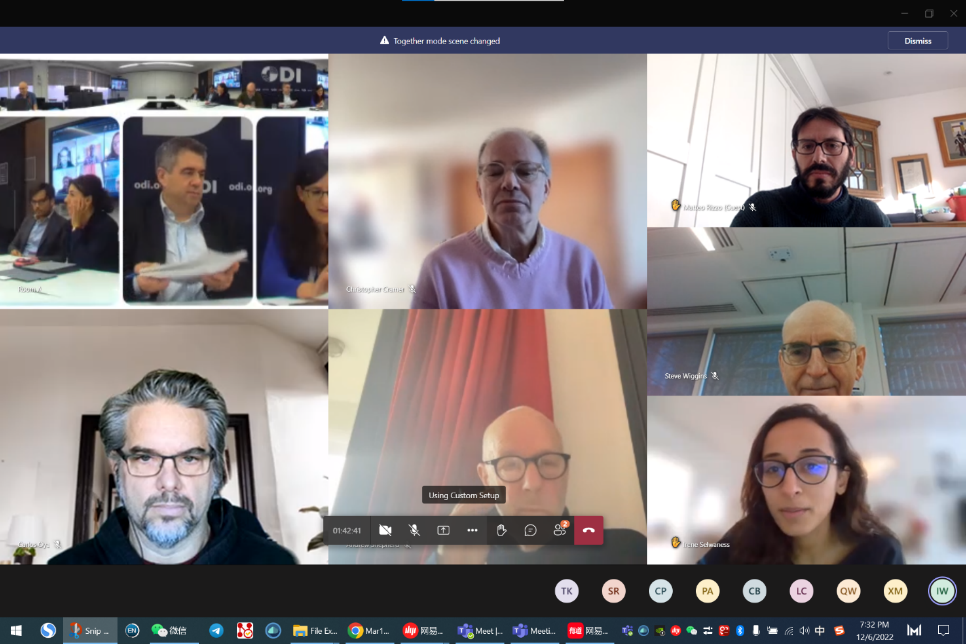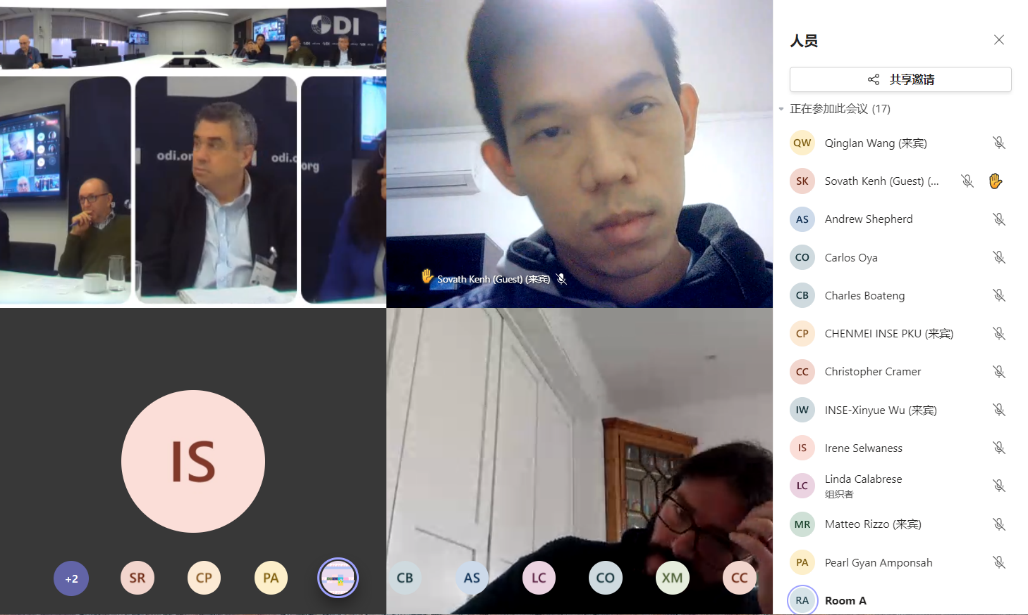Policy﹀
Colleagues from DIDC-INSE joint discussion with the World Bank's Jobs Group team and ODI on Jobs conceptual framework
2022-12-13
The World Bank Jobs Group, Overseas Development Institute (ODI), and other partners hosted a one-day event on a “New Conceptual Framework on Jobs” on December 6, 2022. The event attempted to receive feedback from its partners on the content of their conceptual framework. Upon the invitation of the ODI, the members of the Department of International Development Cooperation of the Institute of New Structural Economics (INSE) participated in the event and joined the discussion on the framework.
A number of global challenges have surged nowadays, including the pandemic, energy crisis, supply chain issue, global climate crisis, inflation, and so on. Particularly, global poverty has been on the rise for the first time in more than two decades. The most effective way to overcome poverty is by creating “better jobs” , which may increase income for the poor. It is essential and timely for policymakers and economic theorists to work together to rethink the lessons and experience and create a jobs agenda.
Before the discussion, the Jobs flagship conceptual framework was introduced by the three distinguished authors, Ian Walker, the Manager of the World Bank's Jobs Group and a Labor Economist; Federica Saliola, a Lead Economist in the World Bank's Jobs Group and a Private Sector Specialist; and Dino Merotto, a Lead Macro Economist at the World Bank. The conceptual framework begins by observing and renewing the patterns of structural transformation by income levels along four dimensions. It proposes the creation of better and more productive jobs at the center of a virtuous circle of development in which processes of structural transformation take shape through organizations and markets. Organizational response to the market can be realized through combining workers in occupations based on competencies, pooling risk, reducing transaction costs in order to achieve economies of scale; investing and augmenting labor with capital; innovating, adopting and adapting new technologies; and providing learning-by-doing. And the constraints to job-rich structural transformation include policy and regulatory failures, under-provision of public goods, market frictions, entry barriers and transaction costs.

INSE's postdoctoral research fellow, Sovath Kenh, suggested considering the importance of foreign direct investment (FDI) along with the comparative advantages of each country in the framework. The conceptual framework aims to build a jobs agenda based on a market-oriented economy. Doubtlessly, the market must play an important role in the process, and a facilitating government is crucial as well. Based on past experience, countries that have followed good industrial policies in accordance with their comparative advantages at each stage of development could absorb quite a lot of FDI, and foreign investments could exert positive impacts on the economic structure in general and “better jobs” creation in particular. Therefore, the importance of FDI and industrial policy in line with comparative advantages should be considered.


